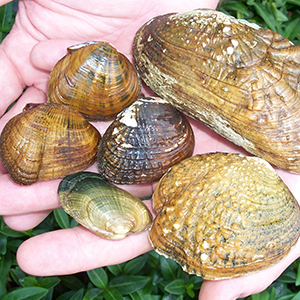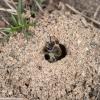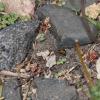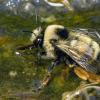Insects and other invertebrates—butterflies, dragonflies, beetles, worms, bees, mussels, and crabs are but a few—make up 94% of the world’s animal species. They bring beauty into our lives, ensure we have food on our plates, and are at the heart of a healthy environment. The services they perform—pollinating, dispersing seeds, becoming food for wildlife, recycling nutrients, cleaning water, building reefs—are critical to life on our planet. Without them whole ecosystems would collapse. Yet invertebrates are often imperiled by human activities.
As a trusted source for science-based information and advice, the Xerces Society harnesses the knowledge of scientists and the enthusiasm of everyday people to implement conservation and education programs. Since 1971, we have defended endangered species and the places they depend on, produced groundbreaking publications on insect conservation, trained thousands of farmers and land managers to preserve and maintain habitat, and raised awareness about the invertebrates of towns, forests, prairies, deserts, and oceans.
Our team draws together experts from the fields of habitat restoration, entomology, botany, farming, conservation biology, and community engagement with a single passion—protecting the life that sustains us.
Learn About Pollinators
Pollinators are essential to our environment. The ecological service they provide is necessary for the reproduction of over 85% of the world’s flowering plants, including more than two-thirds of the world’s crop species. Learn more about bees, butterflies, and other important groups of insect pollinators.
Species Profiles: At-Risk Invertebrates
The Xerces Society works to raise the profile of these diverse and important animals-whether they be cryptic freshwater mussels, minute springsnails, or pollinating bumble bees. Xerces society staff have conducted surveys and written assessments of hundreds of invertebrate species.
Monarch Conservation
Monarch butterflies (Danaus plexippus) are perhaps the most well-known and beloved butterflies in North America, yet have been in serious decline for more than two decades. Learn more about this iconic butterfly and what we're doing to help.
Bumble Bee Conservation
Because they are essential pollinators, loss of bumble bees can have far ranging ecological consequences. Alarmingly, recent work by the Xerces Society in concert with IUCN Bumble Bee Specialist Group, indicates that some species have experienced rapid and dramatic declines. Learn more about bumble bees, species most at-risk, and what you can do to help.
Freshwater Mussels
Freshwater mussels are a valuable keystone species of aquatic ecosystems. As filter feeders they improve water quality, make food available to other organisms, and provide a number of other benefits. Sadly, freshwater mussels are also among the most endangered animals in the world. Learn more about these hidden gems.
Wings: Essays on Invertebrate Conservation
Wings: Essays on Invertebrate Conservation is published twice per year in the spring and fall. Each issue features spectacular photos by leading photographers and articles by well-respected scientists and conservationists. Browse current and archived issues to learn more about our work—past, present, and future!









